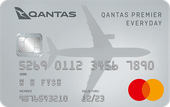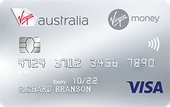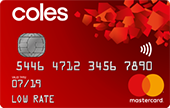Can you balance transfer a personal loan to a credit card?
There are several balance transfer credit cards in Australia that allow you to move the balance from your personal loan to a card, where you can take advantage of a lower or even 0% interest rate for a set period.
This can help you save on interest if you manage the repayments properly, but it’s essential to have a plan in place to pay off the transferred debt within the introductory period. If you don’t, the interest rate will go up after the introductory period, and that could get expensive.
When considering a balance transfer, it's essential to compare the offers and review the terms and conditions to ensure you select the best credit card that suits your financial situation.
How much money could you save by transferring a personal loan?
The amount you can save by transferring a personal loan to a 0% balance transfer card depends on your current loan balance and interest rate. For example, if you have a $10,000 personal loan with an interest rate of 9%, you’d be paying around $900 in interest over a year.
By transferring that loan to a credit card with a 0% interest offer for 12 months, you could potentially save that $900 — provided you pay off the balance before the introductory period ends.
Keep in mind that balance transfer fees (typically 1-3% of the transferred amount) and any remaining balance after the introductory period should be factored into your savings calculation.
Helpful tip: Use our Balance Transfer Savings Calculator to see how much money you could save!
What to consider for personal loan balance transfers
- Potential savings on interest: One of the main reasons to transfer a personal loan to a balance transfer credit card is the potential to save on interest. With many balance transfer cards offering 0% interest for a limited time, more of your repayments go toward reducing the principal amount, helping you pay off your loan faster. However, it’s essential to have a solid repayment plan during the introductory period to avoid high revert rates once the offer ends.
- Limits on the amount you can transfer: Not all credit cards allow you to transfer personal loan debt, and those that do typically cap the amount at 70% to 100% of your approved credit limit. This means you might not be able to transfer your entire loan balance, so checking the terms of each card is critical.
- Balance transfer fees: Many cards charge a one-time balance transfer fee, typically around 1-3% of the total debt you’re transferring. While this fee may seem small, it’s important to include it into your calculations to ensure you're actually saving money on the transfer.
- Revert rates: Once the introductory period ends, the interest rate on your balance may jump significantly — typically higher than the original personal loan rate. Ideally, you'd have paid off the debt before the introductory offer ends so that the higher revert rate won't apply.
- Suitability for lower debt amounts: Balance transfers are generally more suitable for smaller debt amounts or for consolidating multiple smaller debts. If your personal loan balance is large, you might be better off sticking with a personal loan for a longer repayment term and more predictable repayments.
Credit Card Compare expert on choosing a balance transfer card for his personal loan

When Credit Card Compare co-founder David Boyd compares balance transfer cards for a personal loan, he explains what Australians should look out for.
Focus on four things: the interest rate, the length of the introductory interest period, the balance transfer fee, and the revert rate after the introductory period ends. Make sure the card offers enough time to pay off the debt and that the fee doesn’t offset your potential savings.
Balance transfer terms to know about when transferring a personal loan
When transferring a personal loan to a balance transfer credit card, it’s essential to understand key terms to make the best choice for your financial situation. Here’s a breakdown of the terms you should know about:
- Introductory interest rate: Look for a balance transfer card offering a 0% or low introductory rate. This will allow you to pay off your transferred personal loan balance without interest during the introductory period. A lower rate can significantly reduce your overall interest payments if managed correctly.
- Length of the introductory offer: The length of the 0% or low-interest promotional period is crucial. It can range from 6 to 24 months or more. The longer the period, the more time you have to pay off your loan without incurring interest, giving you flexibility to manage your repayments.
- Revert rate: The revert rate is the interest rate applied once the introductory period ends. These rates can be as high as 20-25%, so knowing this number is essential if you cannot pay off the balance during the 0% period. A high revert rate could negate any interest savings if you still owe money once the offer ends.
- Balance transfer fee: This fee is typically between 1-3% of the transferred balance. While some cards offer a waived or low fee, you should compare options as the fee may offset the interest savings if it’s too high.
- Annual fees and other charges: A card with a low or no annual fee helps keep costs down, particularly if you plan to use the card beyond the introductory period. Be aware of other charges such as late payment fees, foreign transaction fees, or cash advance fees, which could increase your overall costs.
- Interest-free days on purchases: Most balance transfer cards do not offer interest-free days on new purchases. Any purchases made during the balance transfer repayment period will likely incur immediate interest, so avoid using the card for new spending until the balance is paid off.
- Rewards and benefits: Some balance transfer cards offer additional perks, such as cashback or frequent flyer points for Qantas or Velocity. While these extras may be appealing, ensure they don’t come with higher fees or terms that outweigh their benefits. Prioritise cards that help you save on interest and fees.
How to transfer a personal loan to a balance transfer credit card
Transferring a personal loan to a balance transfer credit card is a straightforward process, but it requires careful planning to ensure you benefit from the 0% or low interest offer. Here’s how to do it:
1. Check eligibility requirements
Before applying, review the card’s eligibility criteria, especially its income requirements. It’s also a good idea to check your credit score beforehand. Keep in mind that being able to balance transferring from a personal loan to a credit card is the exception as opposed to the rule. Before going any further, check that the card you’re considering definitely supports this option.
2. Check the balance transfer amount
Most cards allow you to transfer a percentage of the credit limit, typically between 70-100%. Make sure the card you’re applying for can accommodate your personal loan amount.
Unfortunately, you won't know what your particular credit limit will be until you've been approved, so check if there is a minimum or maximum credit limit and decide how that aligns with your needs.
3. Apply for the balance transfer credit card
When applying, provide details about the personal loan you wish to transfer, along with your income and expenses. Be prepared to submit documents such as bank statements and payslips. Approval can take a few days to a few weeks, depending on the issuer.
4. Activate the new card and manage your debt
Once your application is approved, activate the new card and set up your online banking account. You can manage your transferred balance through your card provider’s mobile app or online platform.
Once the personal loan balance has been transferred, consider closing the loan account to avoid any additional fees or charges. Be sure to keep track of the repayment schedule for your new card to avoid late fees and interest.
How to maximise your savings with a personal loan balance transfer
- Transfer your loan: Request the transfer as part of your application so that it can be done as soon as possible. Most balance transfer cards require the transfer to be completed within a specified period.
- Keep paying your personal loan until the transfer is complete: Until the transfer is confirmed, continue making payments on your personal loan to avoid a missed payment and damaging your credit score.
- Set a repayment plan: Create a clear plan to pay off the transferred amount, ideally within the 0% introductory period. This will help you avoid paying high revert rates once the introductory period ends.
- Avoid missing payments: Make sure to make all your payments on time, as missing a payment can cancel your 0% offer, causing the interest rate to jump to the revert rate.
Expert opinion on using a balance transfer card for a personal loan

Andrew Boyd, co-founder of Credit Card Compare, explains why the revert rate is .
Check what interest rate will apply to the balance that remains after the introductory period ends. We call this the revert rate. This is especially important if you don't think you'll have paid off the whole balance before the introductory period ends since revert rates are usually higher than what the interest rate on a loan would be.
How Aussies are using personal loan balance transfers
A quick search shows that the topic of transferring a loan to a credit card using a balance transfer offer
One Redditor described it as "a life hack, as long as you are absolutely disciplined and could pay it off at any time with your other funds".
Another said "less the card fees of $297 and transfer fees $1,012, I am projecting a saving of $2,641".
Benefits of using a balance transfer credit card for personal loans
There are several advantages to transferring personal loan debt to a balance transfer credit card. These include saving on interest, simplifying your finances, and paying off your debt faster.
1. Save on interest
Transferring a personal loan to a credit card with a 0% balance transfer offer can significantly reduce the interest you pay. For instance, if you have a $10,000 personal loan with a 9% interest rate, you’d be paying around $900 annually in interest. By transferring the loan to a card with 0% interest for 12 or 18 months, you could save that $900, as long as you pay off the balance within the introductory period.
2. Pay off your personal loan faster
With a 0% interest rate, your entire monthly payment goes toward reducing the principal, helping you pay off the debt faster. If you pay more than the minimum amount each month, you can clear the debt even quicker, without interest charges slowing down your progress.
3. Simplify your finances with debt consolidation
A balance transfer allows you to consolidate your personal loan along with other debts, such as credit card balances, into one account. This makes managing your repayments easier, as you only need to track one monthly payment. It also reduces the chance of missing payments, helping you avoid additional fees.
4. Reduce financial stress
Struggling to keep up with multiple loan payments can be stressful. Transferring your personal loan to a balance transfer card with 0% interest can provide relief by reducing your monthly payments. This frees up money and gives you breathing room to focus on clearing your debt within the introductory period.
5. Improve your credit score
A successful balance transfer can lower your credit utilisation ratio, which is a significant factor in determining your credit score. Lowering the amount of credit you are using relative to your limit can positively impact your credit score over time, as long as you make regular, on-time payments.










